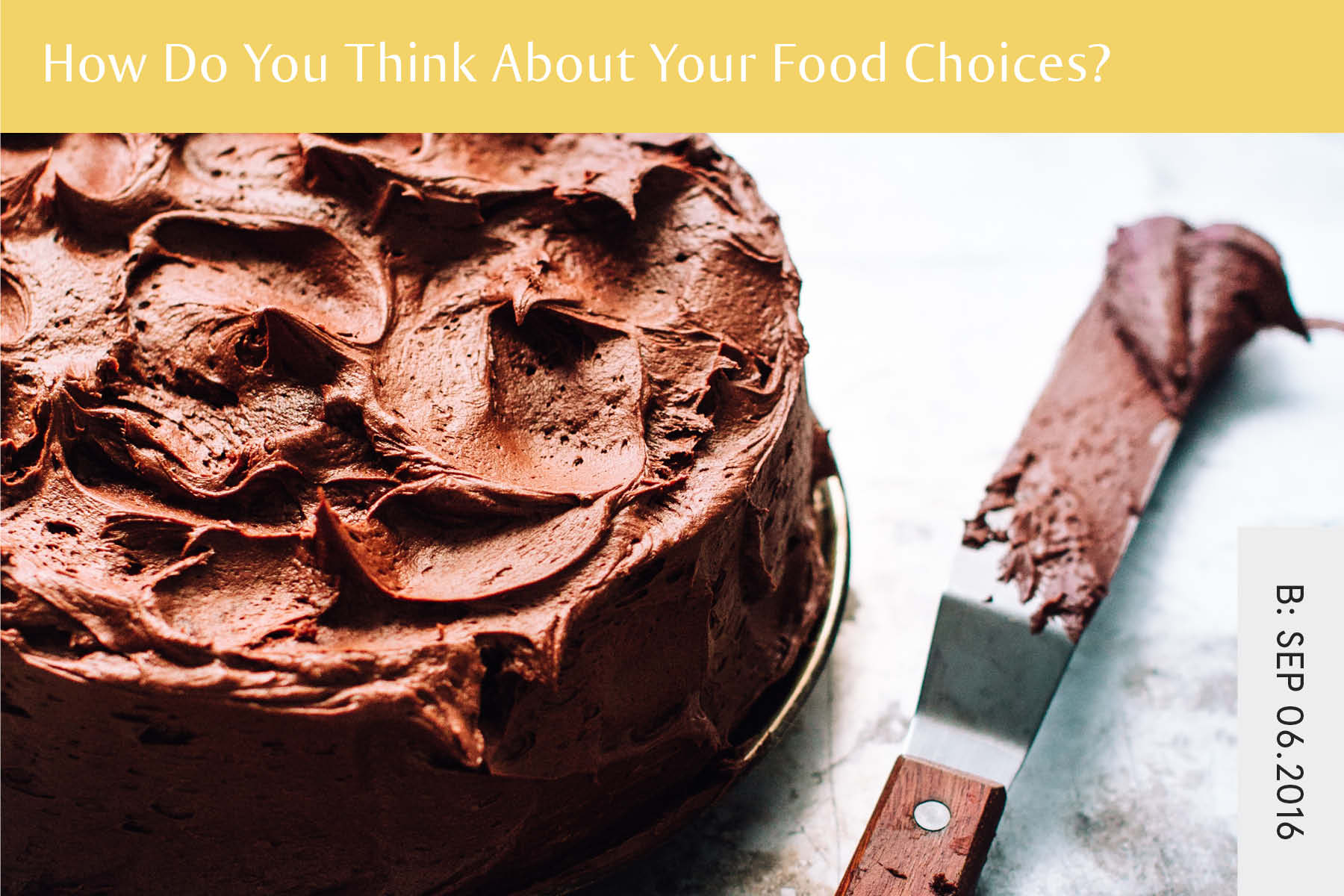

Last week I was speaking to a client. It’s a new client and it’s still early days with us working together.
On one of the days she had some chocolate cake in the afternoon and she was feeling down about it. She made the comment she wished she could be like other health practitioners that she follows, who are able to listen to their body and not eat sugary food like this.
Her comment reminded me of when I was studying nutrition and I had this idea in my head of what my teachers’ ate. I imagined that they thrived every day on the most healthful home cooked food and that they were perfectly in tune with every nutrient that their body needed.
But that bubble was burst when I actually started spending time with these teachers outside of class. And what I found was that they were regular, normal human beings.
Yes they ate well, but they also dealt with the same daily stresses and time pressures as everyone else.
So I shared with my client what I had eaten for lunch on the previous Sunday. It was a Snicker and a Twix. Yes, that was my lunch.
I had been catching up on emails on Sunday morning (another thing I tell people not to do). I then rushed off to play golf but ran out of time to eat. So while walking around a golf course I ate a Snickers and a Twix that I’d picked up after nine holes because I was so hungry.
Now I’m the first to admit that this wasn’t the best lunch I’ve ever eaten. But I’d also be lying if I were to say that it was the first time it had happened. There are times when I fail to follow the advice that I give to clients and find myself eating “unhealthy” food because it is the only thing available at the time.
So what I wanted to point out to this client is that despite the story in her mind that particular practitioners always eat “the right things,” this isn’t actually the case.
But what was different between her particular experience and when I ate in this manner, was the story that we each told ourselves about what these incidents meant.
To her, this “indiscretion” was an indication of weakness and of failing. It was a demonstration that she wasn’t good enough and that she couldn’t behave like the people she so desperately wants to emulate. Her food choice in a sense was a moral failing and spoke about the kind of person she is.
This was the story that she was telling herself because of a piece of chocolate cake.
In compassion, when I ate the Snickers and Twix for lunch, there was no judgment on my part. I didn’t question my identity or the kind of person I am because of my choice.
The thought that actually went through my head was “this is not going to be enough for lunch. When you finish golf, you need to eat a proper meal”.
(And I did follow this advice. I came home and ate a whole quiche. Two hours later for dinner I had two beef short ribs with a mountain of potatoes and sweet potatoes and a large glass of red wine).
For me, this is where the real difference lies. Yes people’s food choices are important, but what is more important is how they feel about these choices.
There is nothing wrong with talking about being organised so you have healthy snacks available when you are hungry. But we also need to live in the real world.
People have times where they are more on top of things with their eating and times when they aren’t. People also have times when they make food choices for health reasons and other times when it is for comfort or celebration or fun.
And if every time you eat something you deem “bad” you find yourself in a shame spiral, then life isn’t going to be too enjoyable.
Please give up the idea of eating perfectly all the time. Or that other people eat perfectly all the time. They don’t.
Because in reality the ones who have this whole food thing sorted out are able to eat their food, whatever those foods maybe, and move on. Where food is just food. And this is what I suggest you aim for.
I’m a leading expert and advocate for full recovery. I’ve been working with clients for over 15 years and understand what needs to happen to recover.
I truly believe that you can reach a place where the eating disorder is a thing of the past and I want to help you get there. If you want to fully recover and drastically increase the quality of your life, I’d love to help.
Want to get a FREE online course created specifically for those wanting full recovery? Discover the first 5 steps to take in your eating disorder recovery. This course shows you how to take action and the exact step-by-step process. To get instant access, click the button below.
Discover the First 5 Steps To Take In Your Eating Disorder Recovery
Get started the right way and be on the path to full recovery and the freedom it will bring YOU.
Unlike other approaches focusing on just one aspect of recovery, this course shares a framework that demonstrates what full recovery is really about and gives you the tools to get there.
Get Instant Access!
Share
Facebook
Twitter